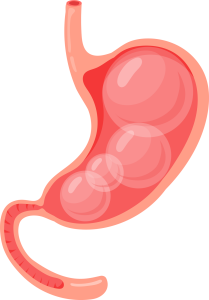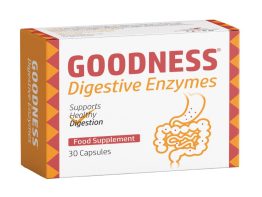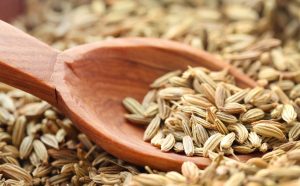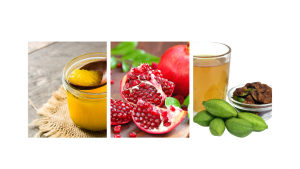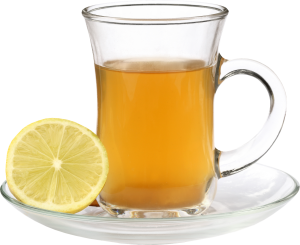Introduction
Gas, bloating, flatulence, and needing to pass gas are common digestive issues that can cause significant discomfort and social embarrassment. This problem is persistent for many people and can interfere with daily life, social interactions, and sleep. The fear of accidentally passing gas in public or during sleep can lead to anxiety and a reduced quality of life. This article aims to thoroughly explain the causes of gas and bloating, the science behind it, and practical solutions to help you manage and eliminate this problem for good. We’ll also explore how digestive enzymes, particularly Goodness Digestive Enzymes, can play a crucial role in alleviating these symptoms.
What Causes Gas and Bloating?
Gas in the digestive system is a normal byproduct of digestion. However, excessive gas can lead to bloating, discomfort, and the need to pass gas frequently. The primary causes of gas and bloating include:
- Fermentation of Undigested Food: When certain foods are not fully broken down in the stomach and small intestine, they pass into the large intestine, where gut bacteria ferment them. This fermentation process produces gas (primarily hydrogen, methane, and carbon dioxide), leading to bloating and flatulence.
- Swallowed Air: Eating or drinking too quickly, chewing gum, or drinking carbonated beverages can cause you to swallow air, which accumulates in the digestive tract and leads to gas.
- Food Intolerances: Some people have difficulty digesting certain foods, such as lactose (found in dairy) or gluten (found in wheat). This can lead to gas, bloating, and other digestive symptoms.
- High-Fiber Foods: While fiber is essential for digestive health, some high-fiber foods (like beans, lentils, and certain vegetables) can produce gas as gut bacteria break them down.
- Imbalance of Gut Bacteria: An overgrowth of certain bacteria in the gut can lead to excessive gas production.
Foods That Cause Bloating and Gas
Certain foods are more likely to lead to increased gas production, especially those high in indigestible or hard-to-digest carbohydrates:
- Beans and Lentils: These contain complex sugars called oligosaccharides that the human body cannot fully digest. When these sugars reach the large intestine, bacteria ferment them, producing gas.
- Cruciferous Vegetables: Broccoli, cauliflower, cabbage, and Brussels sprouts contain raffinose, a complex sugar that is difficult to digest and can lead to gas.
- Dairy Products: Lactose, the sugar in milk and dairy products, requires the enzyme lactase for digestion. People with lactose intolerance lack sufficient lactase, leading to gas, bloating, and diarrhea.
- Whole Grains: Foods like whole wheat, oats, and barley are high in fiber, which can cause gas as gut bacteria break it down.
- Carbonated Drinks: Sodas and other carbonated beverages release carbon dioxide into the stomach, which can cause bloating.
- Artificial Sweeteners: Sorbitol, mannitol, and xylitol, found in sugar-free gum and candies, are poorly absorbed by the body and can cause gas and bloating.
- High-Fat Foods: Fatty foods can slow digestion, leading to gas buildup in the digestive tract.
Understanding how these foods contribute to gas production helps make informed dietary choices. Some individuals react more strongly to certain foods than others, emphasizing the need for a tailored approach.
Strategies to Manage Bloating and Gas
- Identify and Avoid Trigger Foods
- Track foods that cause you the most gas and bloating. Once you identify your triggers, try to limit or avoid them.
- Gradually introduce high-fiber foods into your diet to allow your digestive system to adjust.
- Improve Digestion with Digestive Enzymes
- Digestive enzymes help break down difficult-to-digest foods, reducing the amount of undigested food that reaches the large intestine and is fermented by bacteria.
- Goodness Digestive Enzymes contain 13 powerful enzymes, including protease, amylase, lipase, lactase, and alpha-galactosidase, which target different types of food and help improve digestion.
- Adopt a Gut-Friendly Diet
- Incorporate probiotic-rich foods like yogurt, kefir, sauerkraut, and kimchi to promote a healthy balance of gut bacteria.
- Eat smaller, more frequent meals to reduce the burden on your digestive system.
- Chew your food thoroughly to aid digestion and reduce the amount of air you swallow.
- Lifestyle Changes
- Avoid carbonated drinks and chewing gum, which can cause you to swallow air.
- Practice mindful eating by eating slowly and avoiding distractions during meals.
- Engage in regular physical activity to stimulate digestion and reduce bloating.
- Consider Food Intolerances
- If you suspect you have a food intolerance (e.g., lactose or gluten), consider getting tested or trying an elimination diet to identify the problem.
Remedies to Relieve Gas
- Lifestyle Changes: Combining exercise, a low-FODMAP or specialized diet, and mindfulness can substantially reduce gas episodes.
- Probiotics: Introducing beneficial bacteria can help rebalance gut flora, reducing the overgrowth of gas-producing bacteria.
- Herbal Remedies: Peppermint tea, ginger, and fennel are traditional approaches that ease bloating and gas.
- Digestive Enzymes: Enzyme supplements are designed to bolster the body’s ability to break down complex compounds, thereby reducing fermentation and gas buildup.
The Best Foods for a Happy, Gas-Free Gut
While avoiding certain foods that cause bloating is crucial, incorporating the right foods can help improve digestion and reduce the chances of gas buildup. Here’s a list of foods that are generally gentle on the stomach:
Low-FODMAP Fruits
- Bananas: Ripe bananas are easy to digest and can help soothe the digestive tract.
- Blueberries: Packed with antioxidants and fiber, blueberries are a great low-FODMAP option.
- Citrus Fruits (e.g., oranges, mandarins): These fruits are refreshing and generally non-gassy.
- Pineapple: Contains bromelain, a natural enzyme that aids digestion.
- Strawberries: Another low-FODMAP fruit, gentle on digestion.
Low-FODMAP Vegetables
- Zucchini: A mild, easily digestible vegetable that works well in many dishes.
- Carrots: Naturally sweet and low in fermentable fibers, carrots are easy on the gut.
- Cucumbers: High in water content and soothing for digestion.
- Spinach and Kale (in moderation): Provide essential nutrients without causing gas.
- Bell Peppers (not green): Easy to digest and rich in vitamins.
Lean Proteins
- Chicken and Turkey: Skinless poultry is easy to digest and won’t cause gas.
- Eggs: A versatile source of protein, eggs are typically well-tolerated by most people.
- Fish: Low-fat options like salmon, cod, and tuna are easy on the stomach.
- Tofu (firm or silken): A plant-based protein that’s gentle and low in fermentable compounds.
Grains and Starches
- White Rice: A low-fiber, easily digestible carbohydrate that rarely causes bloating.
- Quinoa: Gluten-free and nutrient-rich, quinoa is a gentle option for most people.
- Oats: A soothing whole grain that provides soluble fiber, aiding digestion without excess gas.
- Potatoes (without the skin): A versatile, non-gassy starch when boiled or baked.
Nuts and Seeds (in Moderation)
- Almonds (small portions): A good source of healthy fats, but stick to small amounts to avoid bloating.
- Chia Seeds (soaked): These seeds are rich in fiber and omega-3s, but soaking them beforehand makes them easier to digest.
- Pumpkin Seeds: Provide healthy fats and proteins without contributing to gas.
Dairy Alternatives
- Lactose-Free Milk: Suitable for those who are lactose intolerant.
- Almond Milk and Coconut Milk: Non-dairy options that are gentle on the stomach.
- Hard Cheeses (e.g., Parmesan, Cheddar): Low in lactose, making them easier to digest.
- Greek Yogurt: Contains probiotics that can support gut health, as long as it’s low in added sugars.
Herbs and Spices
- Ginger: Known for its soothing properties, ginger can ease digestion and reduce bloating.
- Turmeric: Anti-inflammatory and gentle on the stomach.
- Peppermint: Helps relax the digestive muscles and relieve bloating.
- Cinnamon: May improve digestion and reduce gas.
Hydration-Friendly Choices
- Water: Staying hydrated aids digestion and reduces the risk of constipation-related bloating.
- Herbal Teas (e.g., chamomile, peppermint, fennel): Can help relax the digestive system and reduce bloating.
- Coconut Water: Hydrating and rich in electrolytes, which can support digestion.
Probiotic-Rich Foods
- Yogurt with Live Cultures: Helps balance gut bacteria, reducing the likelihood of gas.
- Kefir: A fermented drink that’s easier to digest than regular milk.
- Fermented Vegetables (e.g., sauerkraut, kimchi): Contain probiotics, but consume in moderation to avoid over-fermentation in the gut.
How Digestive Enzymes Help Solve Gas and Bloating
Digestive enzymes are proteins that help break down food into smaller, more absorbable components. When your body doesn’t produce enough digestive enzymes, or when certain foods are difficult to digest, undigested food particles can reach the large intestine, where they are fermented by bacteria, leading to gas and bloating.
Key Digestive Enzymes and Their Roles:
- Protease: Breaks down proteins into amino acids, reducing the risk of undigested protein reaching the large intestine.
- Amylase: Breaks down carbohydrates into simple sugars, preventing the fermentation of undigested carbs.
- Lipase: Breaks down fats into fatty acids and glycerol, improving fat digestion and reducing bloating.
- Lactase: Breaks down lactose in dairy products, helping those with lactose intolerance avoid gas and bloating.
- Alpha-Galactosidase: Breaks down complex sugars in beans, lentils, and cruciferous vegetables, reducing gas production.
How Goodness Digestive Enzymes Can Help?
Goodness Digestive Enzymes is a comprehensive formula that contains 13 powerful enzymes designed to support healthy digestion and reduce gas, bloating, and other digestive discomforts. Here’s how it can help:
- Protease, Amylase, and Lipase: These enzymes break down proteins, carbohydrates, and fats, ensuring that food is fully digested before it reaches the large intestine.
- Lactase: Helps digest lactose, making dairy products easier to tolerate for those with lactose intolerance.
- Alpha-Galactosidase: Targets complex sugars in beans, lentils, and cruciferous vegetables, reducing gas production.
- Cellulase, Hemicellulase, and Pectinase: These enzymes break down plant fibers, making fruits and vegetables easier to digest and reducing bloating.
By taking Goodness Digestive Enzymes with meals, you can improve your digestion, reduce the amount of undigested food that reaches the large intestine, and minimize gas and bloating.
Final Thoughts
Living with continuous gas, bloating, and worrying about passing gas in social settings can be distressing. Identifying triggers, embracing dietary adjustments, and turning to supportive tools like Goodness Digestive Enzymes can significantly reduce and even eliminate these issues. Remember that a consistent approach is key, combining food awareness, mindful eating, and regular exercise. With patience and empathy for yourself, you can reclaim comfort and confidence—both socially and physically—and bid farewell to the anxiety that gas-related issues can impose.
-
Product on sale
 Goodness Digestive EnzymesOriginal price was: $ 29.95.$ 25.95Current price is: $ 25.95.
Goodness Digestive EnzymesOriginal price was: $ 29.95.$ 25.95Current price is: $ 25.95.

